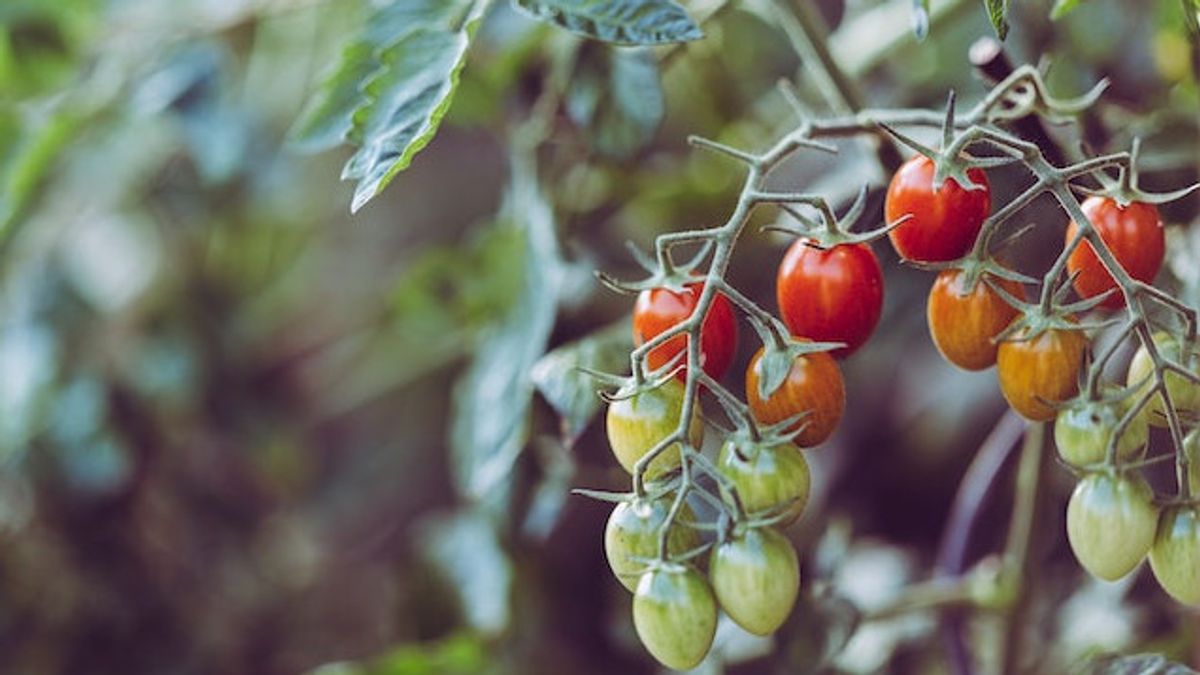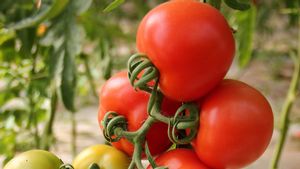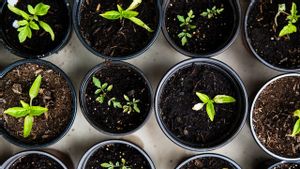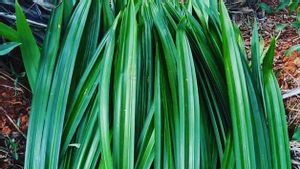JAKARTA - When planting tomatoes, the expected final result is of course the harvest of fruit. However, what if the tomato plant does not bear fruit? Do you see a lot of flowers in the tomato plant but no fruit appears? Quoted from The Spruce, Thursday, August 24, there are several causes for tomatoes not bearing fruit, such as too much water to extreme heat conditions. However, most of these problems can be overcome.
Temperature is one of the biggest factors that affects the yield of tomatoes. Temperatures that are too hot or too cold will delay the fertilization process or even stop the process altogether.
Tomatoes need an ideal temperature to produce fruit between 20 and 25 degrees Celsius. If the temperature is too high, for example 29 degrees, lycopene, which is a red compound producing tomatoes, will stop producing and can cause your plant to fail to mature. While temperatures below 20 can inhibit maturation.
Too much sun exposure can slow the fertilization process. If the plant is under cover, help the plant stay cool by leaving the windows, doors, and ventilation wide open. You can also add a curtain or cloth to filter some of the sunlight. Make sure to grow tomatoes that suit your climate as well. If your garden place is very hot, look for tomatoes with a warm climate that is more resistant to hot weather.
Tomato plants need 1 to 2 inches of water per week when active plants grow and produce fruit. However, once the fruit reaches a ripe size, maturation will occur faster if the water is reduced or even stopped altogether. Fewer water makes the tomato plant stressed and puts it in survival mode. The factory will focus its energy on producing viable seeds, thus helping speed up maturation.
VOIR éGALEMENT:
High humidity conditions can make sticky juice powder, so that it clots and fails to fall onto the female's boutique head. The very dry condition has the opposite effect, namely the flower is not moist enough so that powder can stick properly, so it only rolls over.
There's not much you can do about high humidity levels other than ensuring adequate ventilation and a lot of space between plants to help with air flow. Indeed, some of the lower leaves can help better air circulation as well.
Tomatoes require a lot of nutrients and micronutrients throughout the planting season. Phosphorus and potassium are very important for the production and synthesis of lycopene in fruit. Insufficient amounts can cause slow or uneven maturation. When the first small fruit appears in the plant, give higher fertilizer phosphorus such as and NPK 5-10-5.
In addition, don't forget to pay attention to soil health, by inserting a lot of organic material that rots into the ground at least once a year.
The English, Chinese, Japanese, Arabic, and French versions are automatically generated by the AI. So there may still be inaccuracies in translating, please always see Indonesian as our main language. (system supported by DigitalSiber.id)


















